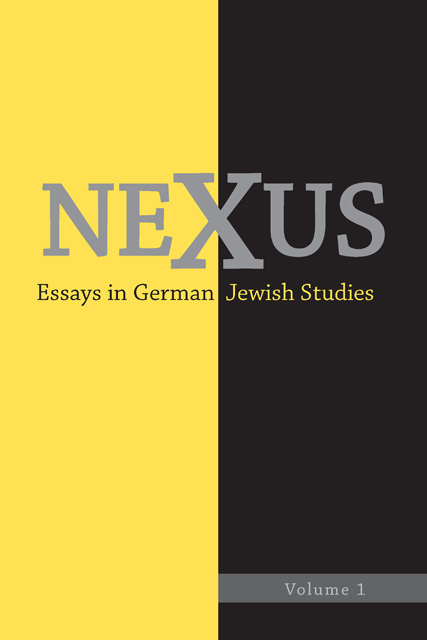Words at War: Hugo Ball and Walter Benjamin on Language and History
Published online by Cambridge University Press: 10 February 2023
Summary
Exploring the missed intellectual encounter between Walter Benjamin and Dada founder Hugo Ball in Bern in 1919, this essay considers their attempts to reflect and overcome catastrophe and “impoverished experience” within a theory of language. Both Ball and Benjamin were driven by a redemptive impulse that was to be found in language, not through language. However, while Ball developed a decisive Christian or Catholic point of view, Benjamin discussed language in relation to Jewish Messianic thought. In what way is their approach influenced by the problem of national and individual guilt and the possibility of freedom? And what is the impact of their religious stances with regard to their respective underlying theories of history, as well as to their language and image theories?
BIOGRAPHICALLY SPEAKING, the encounter between Hugo Ball, “founder” of the Dada movement, and Walter Benjamin, “theoretician” of modernity, can be summarized in a few words: in March 1919 they were neighbors in Bern. Ball had already ended his engagement with the Dada movement in Zurich and worked as a regular contributor to, and editor of, Die Freie Zeitung, one of the most influential political magazines in Switzerland, where he published a series of articles on German national politics. Benjamin had turned away from any political activities he had been involved in when participating in the German Youth Movement and had come to Bern in order to find an advisor for his dissertation, Zum Begriff der Kunstkritik in der deutschen Romantik (The Concept of Art Criticism in German Romanticism, written in 1918–1919, published in 1920), in which he intended to develop an “authentic” theory of art immune to “the current corrupt and directionless practice of art criticism.” He remained aloof to the circle around Die Freie Zeitung, where Ball was one of the leading editors, while Ernst Bloch — who was close friends with both Benjamin and Ball at the time — was one of its most frequent contributors. In a condolence letter to Adorno written after Benjamin’s suicide in 1940, Bloch recalls that it was not Ball, but his partner, the poet Emmy Hennings, who had introduced him to Benjamin. It was Hennings and her artistically talented daughter Annemarie, both “extremely pious Catholics,” with whom Benjamin and his wife had “socialized” in Bern.
- Type
- Chapter
- Information
- Nexus 1Essays in German Jewish Studies, pp. 153 - 170Publisher: Boydell & BrewerPrint publication year: 2011



